
A pivotal moment for free expression online
Technology is increasingly pitting free expression against the undeniable societal harms that accompany disinformation, hate speech, and other manipulative content that are often amplified by social media’s algorithms.
Recent events have brought concerns around free expression online to the forefront of public awareness and are drawing more and more Americans into debates that even until recently were inside baseball for the tech policy crowd in DC and Silicon Valley. The COVID-19 pandemic, for example, highlighted some key weaknesses in our now-digital information ecosystems, forcing Americans to navigate an infodemic. This glut of information – some of it false, much of it on social media — contributed to a climate of enormous uncertainty around basic knowledge when the stakes couldn’t be higher.
Social media companies like Facebook and Twitter are private concerns, and for years now, have expressed reluctance to be “arbiters of truth.” But the pandemic brought with it a rather profound shift in this posture. In the past few months, we saw social media companies actively use the powers afforded them by Section 230 of the Communications Decency Act to moderate objectionable content on their platforms. The companies have exercised their discretion to remove coronavirus – and health-related scams and disinformation – and even to fact-check the president regarding mail-in voting.
Social media platforms have grown into the leading venues for the exchange of viewpoints so fundamental to our democracy. And while Section 230 empowers them to determine what third-party content to allow, there remains a great deal of skepticism about whether and how this broad authority should be used.
A new Gallup/Knight report captures a moment when Americans began to seriously consider the depth of these issues. It points toward the tension Americans are feeling between their desire for the internet to be a forum for the free exchange of ideas and their growing recognition of the costs that such freedom entails. And it shows Americans largely split on how best to address these concerns, a public still torn over the scale of the issues and on the institutions — the government and the internet technology companies themselves – that will ultimately determine a path forward for free expression online.
- Most people want the internet to be a place for free expression. Nearly two-thirds of Americans (65%) favor allowing people to express their views on social media.
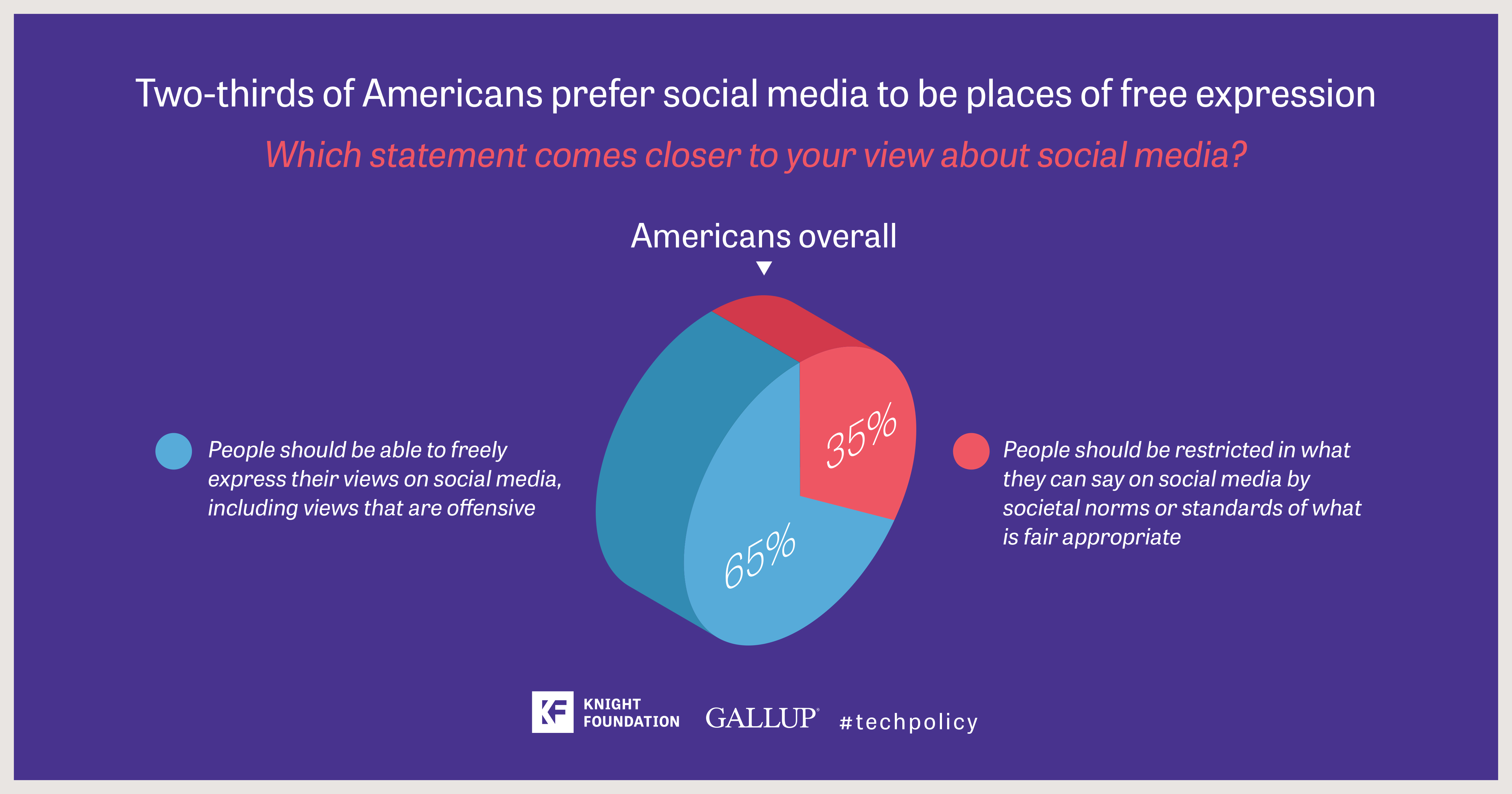
● Most people support the removal of false or misleading health information from social media. Amid the pandemic, 85% of Americans are in favor of this, and 81% support removing intentionally misleading information on elections or other political issues.
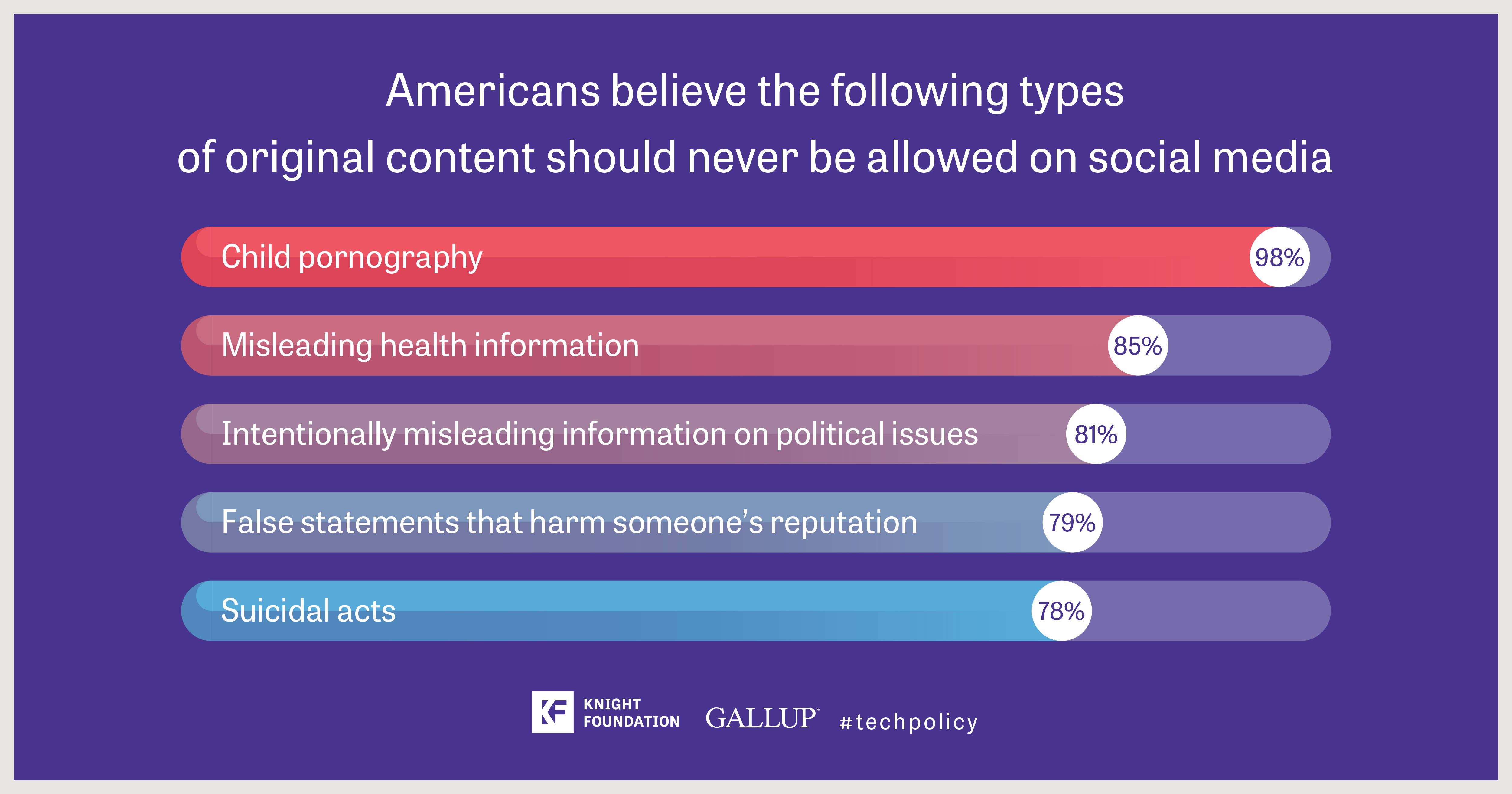
● Most Americans don’t trust social media companies to police the content on their platforms. Eight in 10 said they don’t trust big tech to make the right decisions about what content appears on their sites, and what should be removed. But people, especially conservatives, trust the government even less to make these decisions.
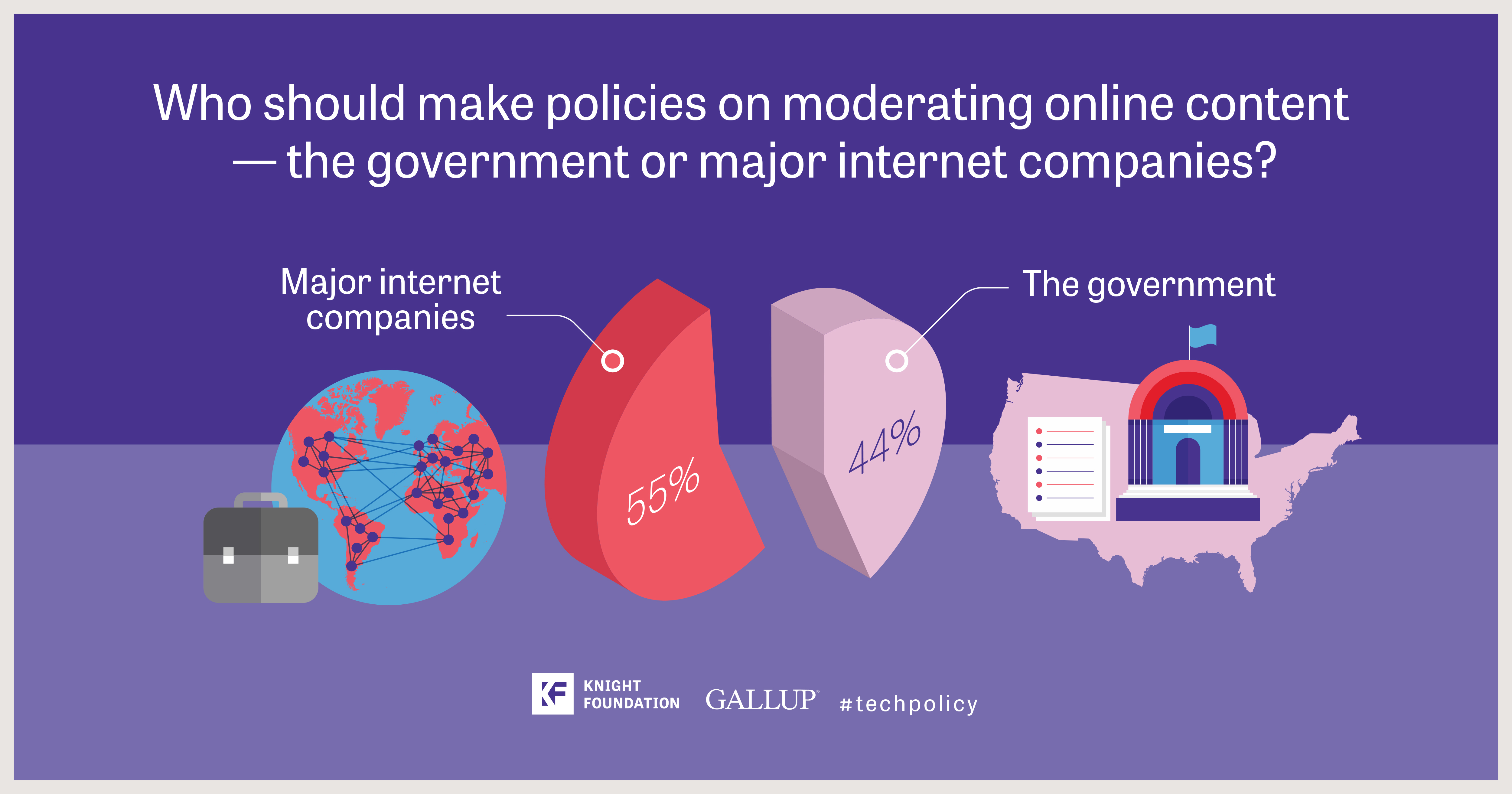
● Most Americans support in principle Section 230 of the Communications Decency Act, the law President Donald Trump and many in Congress are pushing to reform. Almost two-thirds (66%) of Americans say they support keeping the existing law that largely shields technology companies from liability for third-party content hosted on their platforms.
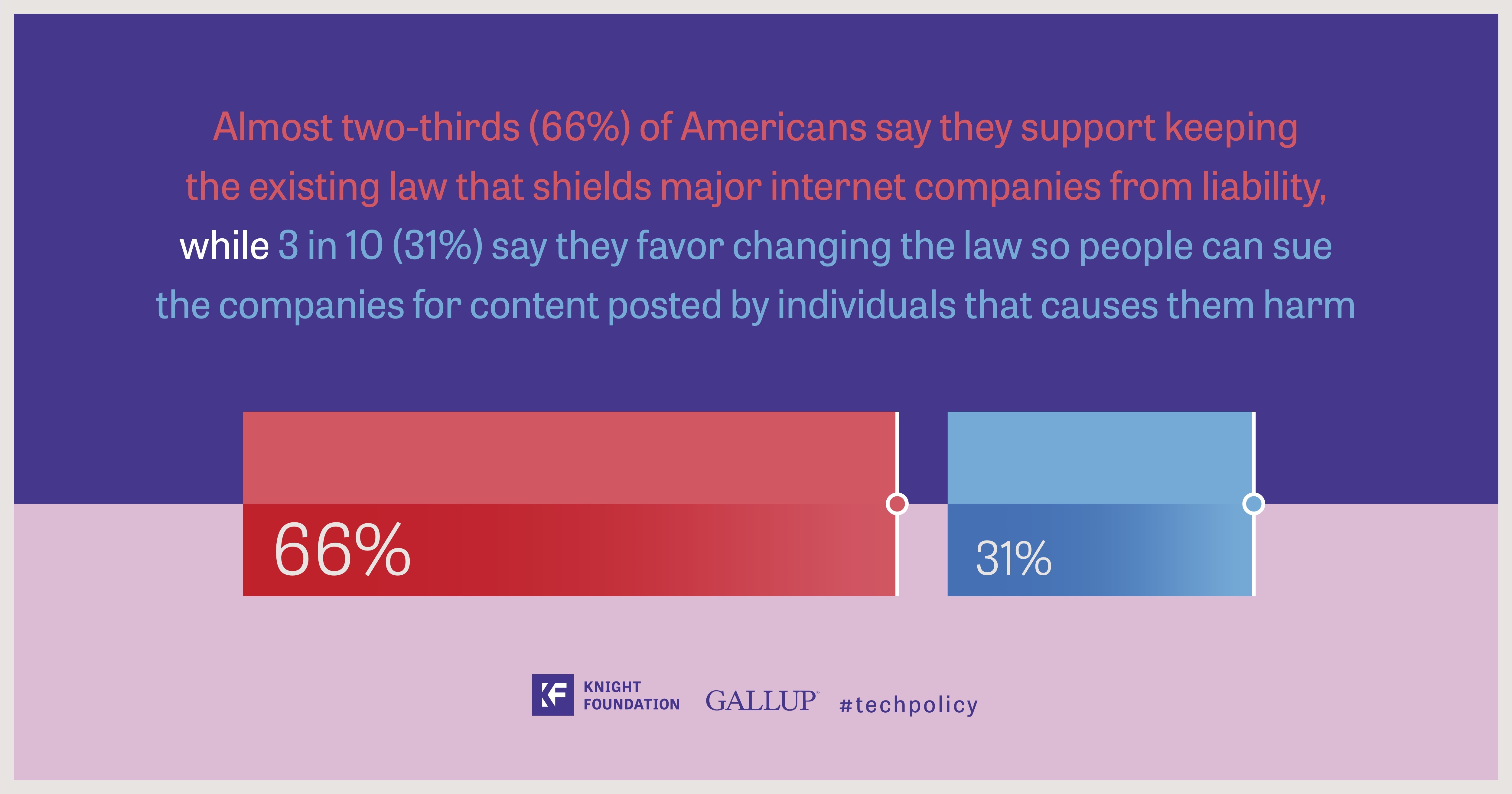
● Americans favor the creation of independent content oversight boards to govern content policy on social media. Eighty-one percent think independent bodies that set policies on the removal of disputed content are a good idea, as long as they are diverse
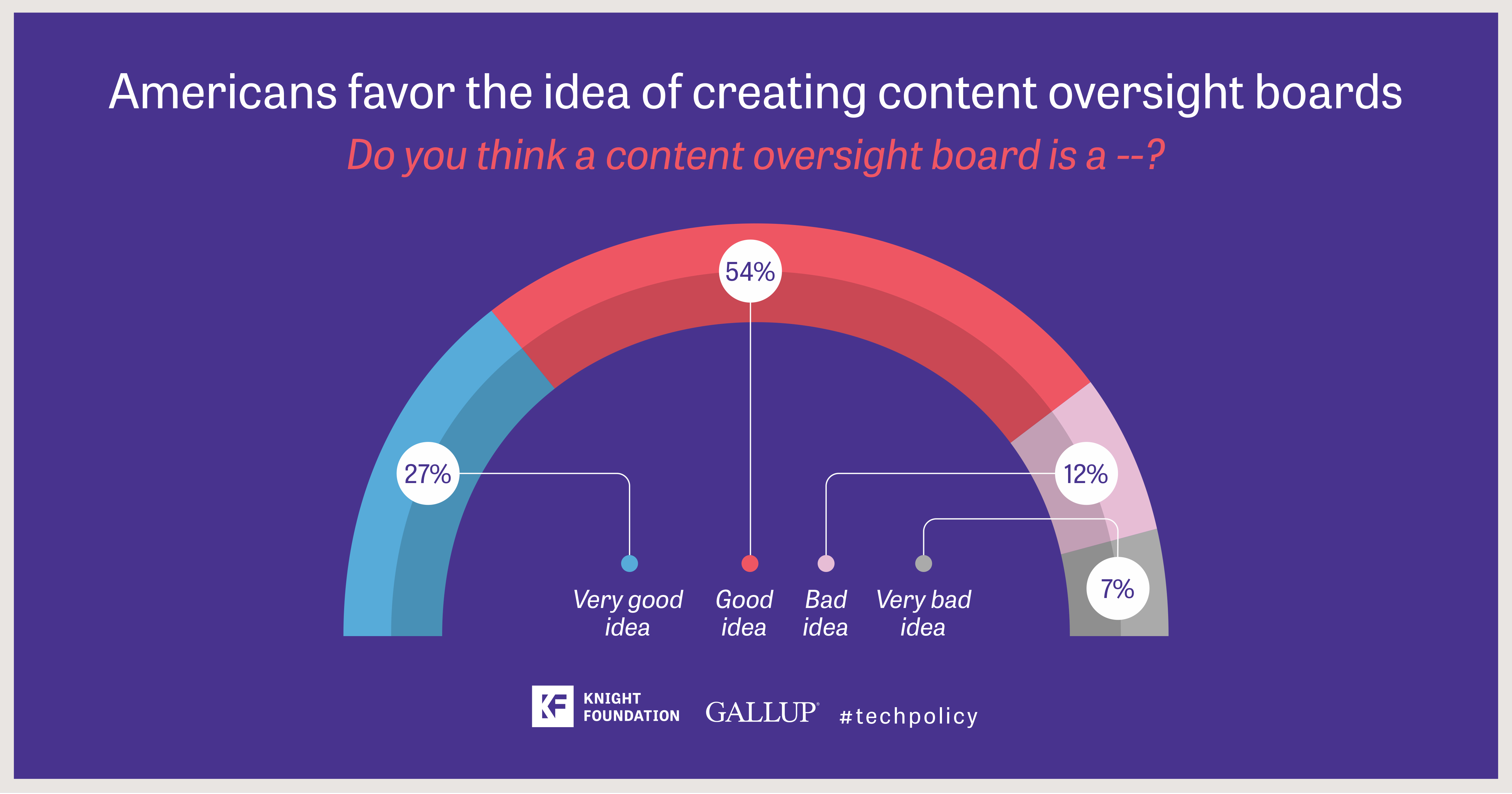
To help contextualize the survey results, Knight and Gallup also invited contributions from a range of experts, including Evelyn Mary Aswad, Danielle Citron, Eric Goldman, Daphne Keller and Olivier Sylvain. Their perspectives situate the findings within the contours of the current policy debate and point toward some of the policy implications Americans must consider.
We hope you’ll weigh in, too, with #techpolicy.
John Sands is Knight Foundation’s director for learning and impact.
Image (top) by Melany Rochester on Unsplash.







